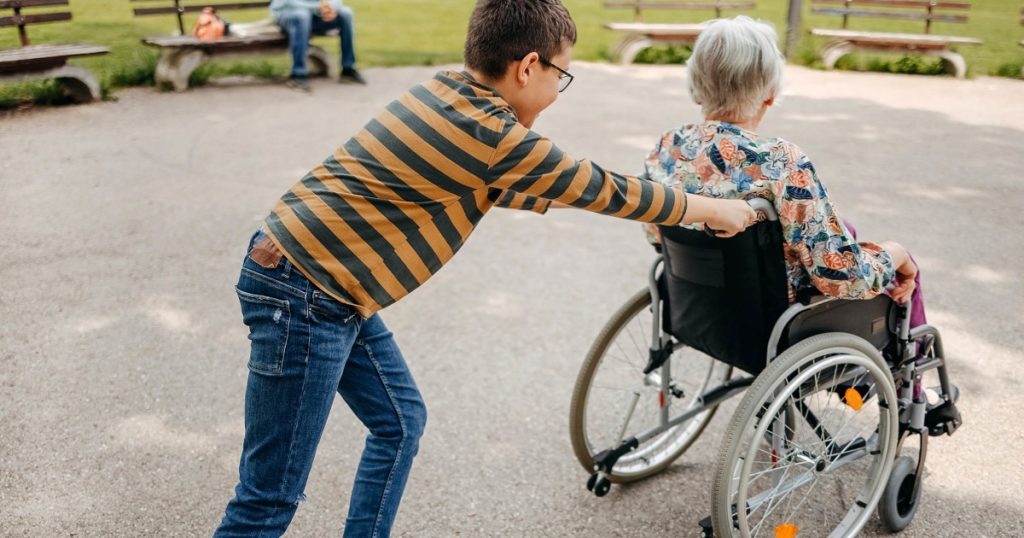In the United States, there are approximately 5.4 million caregivers under the age of 18 who are responsible for caring for a family member, according to the AARP and American Association of Caregiving Youth. This number is on the rise, with child caregivers being most common in Asian, Latino, and Black American families. The increase in child caregivers is attributed to the rising cost of in-home care, leading to more families relying on younger members to provide care. A Florida survey found that 16% of high schoolers and one-quarter of middle schoolers are involved in caregiving in some capacity.
Two young caregivers, 14-year-old Jacob Gutierrez and 17-year-old Rocco Fernandez, shared their experiences in a segment on TODAY. Jacob emphasized the stress and responsibility that comes with caregiving while balancing school, calling home multiple times a day to check in. Rocco, on the other hand, viewed caring for his mother as a natural role as her son, rather than a burden. The emotional toll on child caregivers can lead to anxiety and stress, prompting the introduction of a bill in the Senate aimed at providing resources and support to caregivers under 18, similar to those available to adult caregivers.
To alleviate some of the challenges faced by young caregivers, there are organizations and resources available to provide support. Rocco found solace through Kesem, a program that sponsors summer camps for children of cancer patients. Jacob, on the other hand, found a mentor through the American Association of Caregiving Youth who offers support and guidance. These resources are vital in helping child caregivers navigate their responsibilities while also ensuring their own well-being. The National Alliance on Caregiving recommends several resources for youth caregivers to access support and guidance.
Despite the difficulties that come with being a child caregiver, many young individuals take on the responsibility with a sense of duty and love for their family members. Both Jacob and Rocco demonstrated the resilience and compassion needed to fulfill their caregiving duties while also managing school and personal responsibilities. It is important to recognize the contributions and sacrifices made by child caregivers and to provide them with the necessary resources and support to ensure their well-being and success in their caregiving roles.
The role of child caregivers is significant and often overlooked in society, as the focus is primarily on adult caregivers. However, the number of young caregivers is increasing, highlighting the need for greater awareness and support for this vulnerable population. By acknowledging the challenges faced by child caregivers and providing them with the resources and assistance they need, we can help alleviate some of the burdens they face and ensure they are able to fulfill their caregiving responsibilities while also attending to their own needs and well-being.


